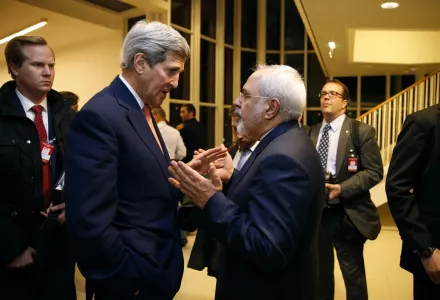The Dilemma of Coercive Assurance in Nuclear Nonproliferation
A seminar with Reid Pauly, Predoctoral Fellow with the International Security Program and Project on Managing the Atom.
A seminar with Reid Pauly, Predoctoral Fellow with the International Security Program and Project on Managing the Atom.

Why do some coercive threats succeed while others fail? Successful coercion requires not only credible threats to succeed, but also credible assurances that the target will not be punished if it complies. This is the overlooked dilemma at the heart of coercive strategies. In this talk, Reid Pauly explains how threats can fail when they are insufficiently contingent. He then steps back to test theories on how states make their assurances believable in the process of coercive bargaining. Pauly examines cases of coercive bargaining between non-allies over nuclear weapons programs, with a focus on South Africa, Libya, and Iran. At the end of the talk, Pauly will focus on the implications of his work for transparency in the nuclear nonproliferation regime.